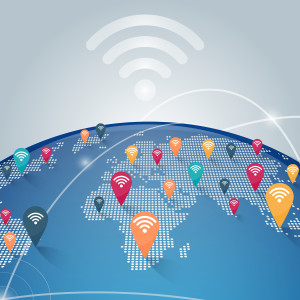Is Connectivity a Right? Gates and Zuckerberg Aim for Universal Internet access by 2020
Recently, movers and pushers like Mark Zuckerberg and Bill Gates signed a declaration shooting for universal Internet access by the year 2020.
Zuckerberg went so far as to call connectivity a human right, and a White House report categorized broadband Internet as a core utility much like electricity and water. As the people of the world grow closer through cyber connectivity, and as innovations and technological discoveries race toward the future, many are asking themselves if connectivity is all it’s cracked up to be.
The Days of Dial-Up Are Dead
I’m a millennial, born in the late ‘80s and grew up during the golden years of the ‘90s, so I’m old enough and young enough to appreciate just how far the idea of connectivity has stretched over the past few decades. Yes, I’ve used a rotary dial telephone, and I’ve rocked to the early dubstep beats of dial-up internet, so the notion of not being able to have immediate access to information and connect instantaneously to the world is not foreign. That said, for a new generation and an evolving world, for better or worse, the days of dial-up are dead.
The Defense
I remember having a friend introduce me to “The Facebook” back in college and thinking how revolutionary it was. As time passed and social technology exploded, it became very apparent that the world and how we communicate was changing quickly and drastically. Instead of waiting for a call on a corded phone or the evening news report, people began hashtagging natural disasters in real time and connecting with public figures online. Everyday Joes and Janes were becoming and creating the news as it happened, and individuals were given access to an infinite, endless source of information at the touch of a button. It’s been pretty amazing.
The Prosecution
On the flip side, cyber crimes and personal information exposure are at an all-time high. Online vigilante organizations are doling out moral accountability, Internet mobs are pitchforking and rioting for and against just about any cause that makes the rounds, and lives are being ruined via cyber bullying and photo sharing. As the world jumps on board, fear and threats of weaponizing the Internet are ever-present. It’s been pretty terrible.
The Verdict
So, what would universal Internet access look like in 2020? For many, the reality is the double-edged sword analogy that’s inherent with any new technological advancement. The idea is subjectively beautiful and terrifying at the same time, and the application affects everyone. “When people have access to the tools and knowledge of the Internet, they have access to opportunities that make life better for all of us,” reads The Connectivity Declaration Zuckerberg and Gates recently signed. “The Internet belongs to everyone. It should be accessible by everyone.”
What do you think? Is connectivity a right? Is the Internet inherently good, bad, or neither? Are you looking forward to or do you fear a completely connected world in the next decade?
Andrew is a word wizard/content creator extraordinaire who considers himself a bit of a dabbler. From writing to reading, exercise, outdoor exploration, art, music, photography, and even little existentialism, it’s all color on the creative palette.


